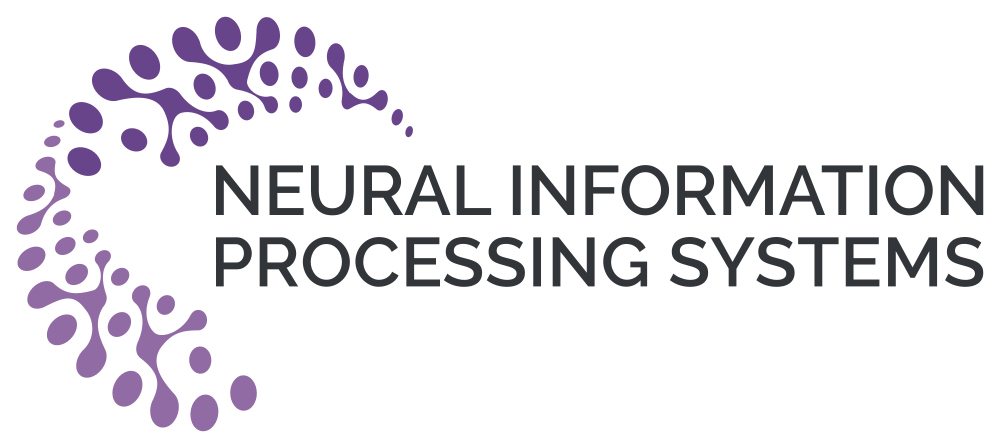The Annual Conference on Neural Information Processing Systems (NeurIPS) is one of the most prestigious and competitive international conferences in machine learning and computational neuroscience. At NeurIPS 2025, 27 of the accepted papers involves WASP PhD students, WASP alumni and/or WASP faculty as authors or co-authors.
This number is a true success for WASP and a mark of excellence. We’re especially proud to note that this represents an increase of 7 papers compared to last year, reflecting the growing impact of WASP researchers on the global AI stage.
The list of accepted papers was updated October 9, 2025.
Accepted papers with contribution from WASP PhD students, WASP alumni and WASP researchers:
Learning Chern Numbers of Multiband Topological Insulators with Gauge Equivariant Neural Networks
Longde Huang, Oleksandr Balabanov, Hampus Linander, Mats Granath, Daniel Persson, Jan Gerken
HollowFlow: Efficient Sample Likelihood Evaluation using Hollow Message Passing
Johann Flemming Gloy, Simon Olsson
Practical Bayes-Optimal Membership Inference Attacks
Marcus Lassila, Johan Östman, Khac-Hoang Ngo, Alexandre Graell i Amat
An Investigation of Memorization Risk in Healthcare Foundation Models
Sana Tonekaboni, Lena Stempfle, Adibvafa Fallahpour, Walter Gerych, Marzyeh Ghassemi
Subgraph Federated Learning via Spectral Methods
Javad Aliakbari, Johan Östman, Ashkan Panahi, Alexandre Graell i Amat
Pool Me Wisely: On the Effect of Pooling in Transformer-Based Models
Sofiane ENNADIR, Levente Zólyomi, Oleg Smirnov, Tianze Wang, John Pertoft, Filip Cornell, Lele Cao
Shapley-Based Data Valuation for Weighted -Nearest Neighbors
Guangyi Zhang, Qiyu Liu, Aristides Gionis
DeltaFlow: An Efficient Multi-frame Scene Flow Estimation Method
Qingwen Zhang, Xiaomeng Zhu, Yushan Zhang, Yixi Cai, Olov Andersson, Patric Jensfelt
Streaming Stochastic Submodular Maximization with On-Demand User Requests
Honglian Wang, Sijing Tu, Lutz Oettershagen, Aristides Gionis
Adversarial Diffusion for Robust Reinforcement Learning
Daniele Foffano, Alessio Russo, Alexandre Proutiere
Discovering Opinion Intervals from Conflicts in Signed Graphs
Peter Blohm, Florian Chen, Aristides Gionis, Stefan Neumann
Prompt Tuning Decision Transformers with Structured and Scalable Bandits
Finn Rietz, Oleg Smirnov, Sara Karimi, Lele Cao
Alternating Gradient Flows: A Theory of Feature Learning in Two-layer Neural Networks
Daniel Kunin, Giovanni Luca Marchetti, Feng Chen, Dhruva Karkada, James Simon, Michael Deweese, Surya Ganguli, Nina Miolane
How to Learn a Star: Binary Classification with Starshaped Polyhedral Sets
Marie-Charlotte Brandenburg, Katharina Jochemko
MetaKoopman: Bayesian Meta-Learning of Koopman Operators for Modeling Structured Dynamics under Distribution Shifts
Mahmoud Selim, Sriharsha Bhat, Karl H. Johansson
Shift Before You Learn: Enabling Low-Rank Representations in Reinforcement Learning
Bastien Dubail, Stefan Stojanovic, Alexandre Proutiere
Revisiting Frank-Wolfe for Structured Nonconvex Optimization
Hoomaan Maskan, Yikun Hou, Suvrit Sra, Alp Yurtsever
Vision-and-Language Training Helps Deploy Taxonomic Knowledge but Does Not Fundamentally Alter It
Yulu Qin, Dheeraj Varghese, Adam Dahlgren Lindström, Lucia Donatelli, Kanishka Misra, Najoung Kim
Informed Initialization for Bayesian Optimization and Active Learning
Carl Hvarfner, David Eriksson, Eytan Bakshy, Maximilian Balandat
Classical Planning with LLM-Generated Heuristics: Challenging the State of the Art with Python Code
Augusto B. Corrêa, André Pereira, Jendrik Seipp
Exploiting the Asymmetric Uncertainty Structure of Pre-trained VLMs on the Unit Hypersphere
Li Ju, Max Andersson, Stina Fredriksson, Edward Glöckner, Andreas Hellander, Ekta Vats, Prashant Singh
Kernel Learning with Adversarial Features: Numerical Efficiency and Adaptive Regularization
Antonio H. Ribeiro, David Vävinggren, Dave Zachariah, Thomas B. Schön, Francis Bach
AI Research Agents for Machine Learning: Search, Exploration, and Generalization in MLE-bench
Edan Toledo, Karen Hambardzumyan, Martin Josifoski, RISHI HAZRA, Nicolas Baldwin, Alexis Audran-Reiss, Michael Kuchnik, Despoina Magka, Minqi Jiang, Alisia Lupidi, Andrei Lupu, Roberta Raileanu, Kelvin Niu, Tatiana Shavrina, Jean-Christophe Gagnon-Audet, Michael Shvartsman, Shagun Sodhani, Alexander Miller, Abhishek Charnalia, Derek Dunfield, Carole-Jean Wu, Pontus Lars Erik Saito Stenetorp, Nicola Cancedda, Jakob Foerster, Yoram Bachrach
Inverse Optimization Latent Variable Models for Learning Costs Applied to Route Problems
Alan Lahoud, Erik Schaffernicht, Johannes Andreas Stork
Prompt Tuning Decision Transformers with Structured and Scalable Bandits
Finn Rietz, Oleg Smirnov, Sara Karimi, Lele Cao
LexiCon: a Benchmark for Planning under Temporal Constraints in Natural Language
Periklis Mantenoglou, RISHI HAZRA, Pedro Zuidberg Dos Martires, Luc De Raedt
An Efficient Local Search Approach for Polarized Community Discovery in Signed Networks
Linus Aronsson, and Morteza Haghir Chehreghani
Published: October 9th, 2025
[addtoany]


